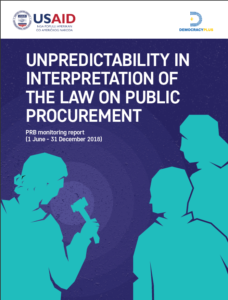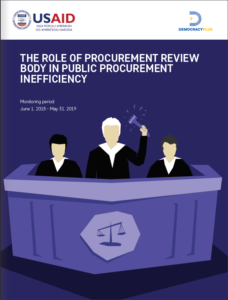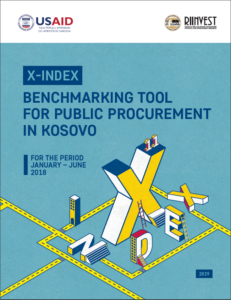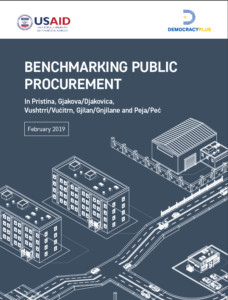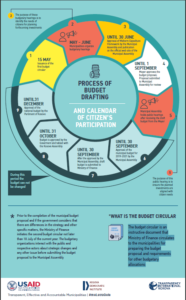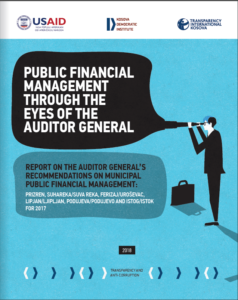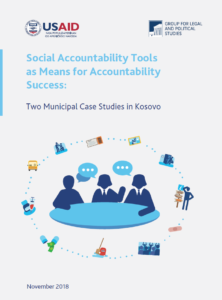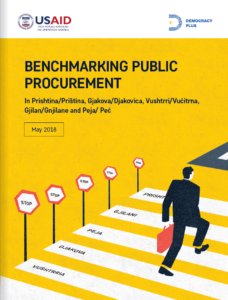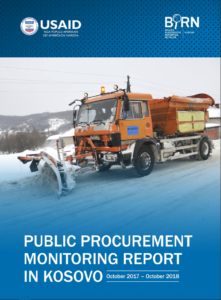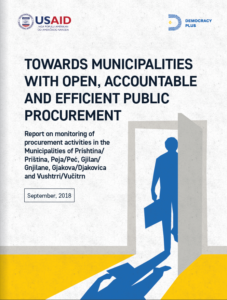
Increasing efficiency and transparency of the public procurement system is a constant concern of Kosovo society and the international community in Kosovo. For this purpose, various projects have been implemented in Kosovo in order to improve the legislation and practices concerning public procurement. Despite this, public procurement in Kosovo still remains a sector perceived to be corrupt, inefficient and ineffective in terms of ability to deliver quality services for citizens.
In the framework of cooperation with the USAID Transparent, Efficient and Accountable Municipalities activity (USAID TEAM), Democracy Plus has undertaken the initiative of monitoring five municipalities including Prishtina/Priština, Gjilan/Gnjilane, Peja/Peć, Gjakova/Djakovica and Vushtrri/Vučitrn. This monitoring focused on two main components:
• Monitoring procurement activities with the purpose of exposing violations of the law, losses, and allegations ofcorruption, and;
• Identifying and sharing good practices in public procurement manage-ment.
To this end, since September 2017, D+ has conducted a baseline assessment of these municipalities, developed a report on measuring good practices, and published this third report, identifying public procurement violations with data from direct monitoring.
This monitoring was conducted based on the methodology adapted by D+, which included direct monitoring of bid eval-uations, monitoring of tender documents, and monitoring of contract enforcement by directly observing work in the field and checking documents on contract execution. The findings of monitoring were shared with the respective municipalities, to enable them to provide their comments, as a means of validating the data. On some of the findings of the report, D+ and the mu-nicipality failed to share a common view. Therefore, this report also presents the monitoring findings and comments from municipalities.

